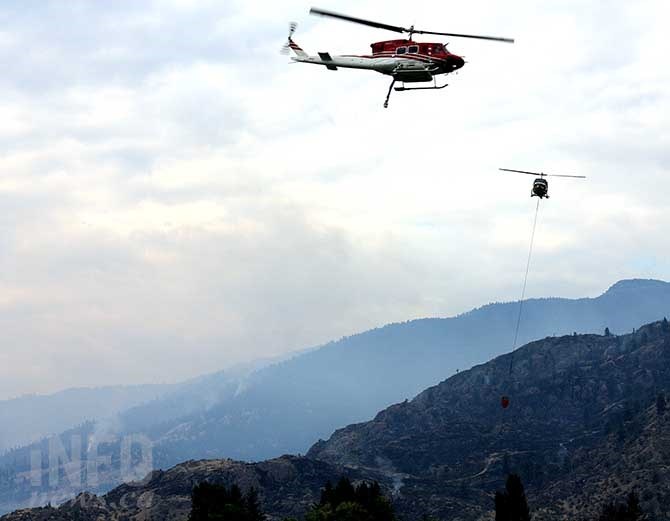
The B.C. fire season has been abnormally slow so far this year when compared to wildfire five year statistics for the province.
(STEVE ARSTAD / iNFOnews.ca)
July 29, 2020 - 6:00 AM
Summer weather has returned to the British Columbia interior this week with a vengeance, bringing an increased risk of wildfire to a season that has been relatively uneventful so far.
That’s what the latest statistics from British Columbia’s Wildfire seasonal outlook for July indicate with its latest update of July 24.
The province has seen only 36 new wildfires in July, just five of which have grown over a single hectare.
Seven of those fires were lightning caused. There have also been 124 nuisance fires, classified as a fire which does not extend to forest or range beyond an authorized burning area.
Nuisance fires could be abandoned campfires, burning vehicles or equipment where the fire doesn’t spread to nearby vegetation.
What is most interesting about this year’s fire season so far is the lack of wildfire activity to date, when compared to five-year averages.
As of July 24, 218 wildfires burned in 2020 compared to the five-year average of 797, or a 25-year average of 757.
The number of hectares burned this year is a mere 714 ha compared to a five-year average of 165,724 ha, or a 25-year average of 60,199 ha.
B.C. Wildfire’s seasonal outlook is a forecast for much drier conditions over the next few days, favouring lightning-caused fires.
Not only have there been fewer fires this year, but those ones that did break out have been easier to extinguish.
B.C. Wildfire says initial wildfire attacks should be more successful at putting fires out because of the moisture that fell in June and early July.
“Areas that will see the fastest wildfire growth will be in grassy, steep, south facing areas located close to the U.S.A. border. However, there is also a high probability of sustained action success in these areas with little control difficulties beyond initial fire growth,” the report says.
To contact a reporter for this story, email Steve Arstad or call 250-488-3065 or email the editor. You can also submit photos, videos or news tips to tips@infonews.ca and be entered to win a monthly prize draw.
We welcome your comments and opinions on our stories but play nice. We won't censor or delete comments unless they contain off-topic statements or links, unnecessary vulgarity, false facts, spam or obviously fake profiles. If you have any concerns about what you see in comments, email the editor in the link above.
News from © iNFOnews, 2020